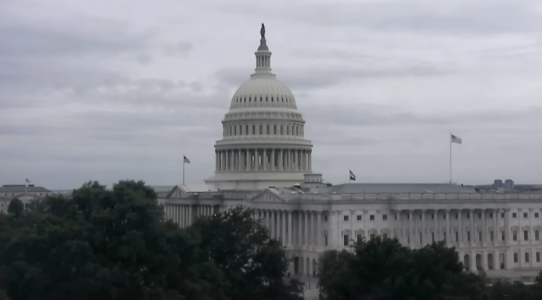Taxpayers stand to save $30 billion with Medicaid reform
- Replies 0
If you or a loved one rely on Medicaid—or if you’re simply a taxpayer concerned about how your dollars are spent—there’s a big change brewing in Washington DC that could affect millions of Americans.
The Centers for Medicare & Medicaid Services (CMS) has proposed a sweeping new rule aimed at closing a decades-old “tax loophole” in Medicaid financing.
The agency claims this move could save federal taxpayers more than $30 billion over the next five years. But as with any major policy shift, the story is more complicated than it first appears.
What’s the Medicaid “Loophole” All About?
A proposed regulatory change from the Centers for Medicare & Medicaid Services (CMS) seeks to close a long-standing "tax loophole" in Medicaid financing, a move the agency claims could save federal taxpayers more than $30 billion over the next five years.
CMS announced on Monday that it intends to ban states from imposing targeted taxes on managed care organizations' (MCOs) "Medicaid business," which are designed to generate higher federal reimbursements.
However, Dr. Susan Dorr Goold of the University of Michigan expressed concerns to Newsweek about a "drastic policy change, which does not allow states, and providers, time to adjust."
Key Implications of the Change
CMS explains that these taxes, structured to specifically target MCOs’ Medicaid operations, artificially inflate a state’s Medicaid spending, enabling the state to receive higher matching funds from the federal government.

Officials have described this tactic as a legal workaround allowing states to secure inflated Medicaid funds while freeing up their budgets for unrelated expenditures, such as "new benefits for illegal immigrants."
Understanding the Loophole and its Impact
CMS stated that these "loophole taxes are solely designed to game the higher federal match" by taxing specific entities, thereby drawing down a larger federal match.
The agency further noted that federal dollars are then redistributed to the entities taxed, labeling the practice as "what most Americans call money laundering."
CMS cited California’s example, where Medicaid business in "certain cases" is taxed at $274 per member per month, while non-Medicaid business is taxed at just $2 per member per month.
Also read: A major Medicaid shakeup is coming—could your coverage be at risk?
Dr. Goold responded to the CMS characterization of provider taxes as "money laundering," explaining to Newsweek that although CMS refers to the taxes as such, they are in fact legal and the term is inaccurate.
The proposed rule aims to prevent higher tax rates on Medicaid business, clarify Medicaid-specific tax language to stop regulatory evasion, and implement a transition plan for states with older waivers.
CMS estimates that the rule could save federal taxpayers billions, and warns that if these financing tactics continue to expand, the cost of excess Medicaid spending could exceed $74 billion over the next five years.
The agency also pointed to waivers approved late in the Biden administration for California, Michigan, Massachusetts, and New York, which it claims account for over 95% of the projected losses from the loophole.
Source: CBS News / Youtube.
Expert Reactions and Concerns
Dr. Goold commented to Newsweek: "I do think that CMS can and should take a hard look at all the sources of funds states use to pay for their share of Medicaid, including but not limited to provider taxes."
She continued, "Eliminating states' ability to use any and all provider taxes, however, would decrease states' Medicaid budgets, except for Alaska, which doesn't use provider taxes. States would then need to either raise taxes from other sources, reduce enrollment, or cut payments to providers. Decreasing enrollment could increase uninsurance, which would hurt providers, especially those serving large numbers of Medicaid recipients. More importantly, it would harm those who lose coverage."
She added, "I am especially concerned about a rapid implementation of this drastic policy change, which does not allow states, and providers, time to adjust."
Also read: Are you at risk? 5 Medicaid cuts that could change your coverage—and your life
Laura Wherry, a professor of Economics and Public Service at New York University, told Newsweek: "This proposed rule seeks to strengthen government oversight of how states finance their share of the Medicaid program. If it is finalized, states will need to find alternative ways to make up for the lost resources, possibly by cutting other spending, raising taxes, or scaling back Medicaid benefits or provider payments."
CMS Administrator Dr. Mehmet Oz said in the press release: "States are gaming the system—creating complex tax schemes that shift their responsibility to invest in Medicaid and rob federal taxpayers. This proposed rule stops the shell game and ensures federal Medicaid dollars go where they're needed most—to pay for health care for vulnerable Americans who rely on this program, not to plug state budget holes or bankroll benefits for noncitizens."
Drew Snyder, CMS deputy administrator and Medicaid director, added: "This isn't just wasteful—it's wrong. Medicaid was designed to protect low-income seniors, pregnant women, children, and people with disabilities—not subsidize coverage schemes that displace our most vulnerable. We are restoring Medicaid to its original purpose and ensuring the intent of the law is followed."
Source: Fox News Clips / Youtube.
Next Steps and Public Involvement
The proposed rule is open for public comment until July 14, 2025, and can be reviewed on the Federal Register.
Read next: How Trump’s latest executive order could impact your Medicare and Medicaid benefits—What you need to know

Have you or a loved one been affected by changes in Medicaid? Do you have concerns about how your state funds its share of the program? What do you think about the proposed crackdown? Share your experiences and opinions in the comments below!
The Centers for Medicare & Medicaid Services (CMS) has proposed a sweeping new rule aimed at closing a decades-old “tax loophole” in Medicaid financing.
The agency claims this move could save federal taxpayers more than $30 billion over the next five years. But as with any major policy shift, the story is more complicated than it first appears.
What’s the Medicaid “Loophole” All About?
A proposed regulatory change from the Centers for Medicare & Medicaid Services (CMS) seeks to close a long-standing "tax loophole" in Medicaid financing, a move the agency claims could save federal taxpayers more than $30 billion over the next five years.
CMS announced on Monday that it intends to ban states from imposing targeted taxes on managed care organizations' (MCOs) "Medicaid business," which are designed to generate higher federal reimbursements.
However, Dr. Susan Dorr Goold of the University of Michigan expressed concerns to Newsweek about a "drastic policy change, which does not allow states, and providers, time to adjust."
Key Implications of the Change
CMS explains that these taxes, structured to specifically target MCOs’ Medicaid operations, artificially inflate a state’s Medicaid spending, enabling the state to receive higher matching funds from the federal government.

The US Centers for Medicare & Medicaid Services (CMS) has proposed a rule to close a longstanding tax loophole that allows states to increase their federal Medicaid funding, potentially saving taxpayers over $30 billion in five years. Image source: CBS News / Youtube.
Officials have described this tactic as a legal workaround allowing states to secure inflated Medicaid funds while freeing up their budgets for unrelated expenditures, such as "new benefits for illegal immigrants."
Understanding the Loophole and its Impact
CMS stated that these "loophole taxes are solely designed to game the higher federal match" by taxing specific entities, thereby drawing down a larger federal match.
The agency further noted that federal dollars are then redistributed to the entities taxed, labeling the practice as "what most Americans call money laundering."
CMS cited California’s example, where Medicaid business in "certain cases" is taxed at $274 per member per month, while non-Medicaid business is taxed at just $2 per member per month.
Also read: A major Medicaid shakeup is coming—could your coverage be at risk?
Dr. Goold responded to the CMS characterization of provider taxes as "money laundering," explaining to Newsweek that although CMS refers to the taxes as such, they are in fact legal and the term is inaccurate.
The proposed rule aims to prevent higher tax rates on Medicaid business, clarify Medicaid-specific tax language to stop regulatory evasion, and implement a transition plan for states with older waivers.
CMS estimates that the rule could save federal taxpayers billions, and warns that if these financing tactics continue to expand, the cost of excess Medicaid spending could exceed $74 billion over the next five years.
The agency also pointed to waivers approved late in the Biden administration for California, Michigan, Massachusetts, and New York, which it claims account for over 95% of the projected losses from the loophole.
Source: CBS News / Youtube.
Expert Reactions and Concerns
Dr. Goold commented to Newsweek: "I do think that CMS can and should take a hard look at all the sources of funds states use to pay for their share of Medicaid, including but not limited to provider taxes."
She continued, "Eliminating states' ability to use any and all provider taxes, however, would decrease states' Medicaid budgets, except for Alaska, which doesn't use provider taxes. States would then need to either raise taxes from other sources, reduce enrollment, or cut payments to providers. Decreasing enrollment could increase uninsurance, which would hurt providers, especially those serving large numbers of Medicaid recipients. More importantly, it would harm those who lose coverage."
She added, "I am especially concerned about a rapid implementation of this drastic policy change, which does not allow states, and providers, time to adjust."
Also read: Are you at risk? 5 Medicaid cuts that could change your coverage—and your life
Laura Wherry, a professor of Economics and Public Service at New York University, told Newsweek: "This proposed rule seeks to strengthen government oversight of how states finance their share of the Medicaid program. If it is finalized, states will need to find alternative ways to make up for the lost resources, possibly by cutting other spending, raising taxes, or scaling back Medicaid benefits or provider payments."
CMS Administrator Dr. Mehmet Oz said in the press release: "States are gaming the system—creating complex tax schemes that shift their responsibility to invest in Medicaid and rob federal taxpayers. This proposed rule stops the shell game and ensures federal Medicaid dollars go where they're needed most—to pay for health care for vulnerable Americans who rely on this program, not to plug state budget holes or bankroll benefits for noncitizens."
Drew Snyder, CMS deputy administrator and Medicaid director, added: "This isn't just wasteful—it's wrong. Medicaid was designed to protect low-income seniors, pregnant women, children, and people with disabilities—not subsidize coverage schemes that displace our most vulnerable. We are restoring Medicaid to its original purpose and ensuring the intent of the law is followed."
Source: Fox News Clips / Youtube.
Next Steps and Public Involvement
The proposed rule is open for public comment until July 14, 2025, and can be reviewed on the Federal Register.
Read next: How Trump’s latest executive order could impact your Medicare and Medicaid benefits—What you need to know
Key Takeaways
- The US Centers for Medicare & Medicaid Services (CMS) has proposed a rule to close a longstanding tax loophole that allows states to increase their federal Medicaid funding, potentially saving taxpayers over $30 billion in five years.
- Under the current system, some states levy higher taxes on managed care organizations’ (MCOs) Medicaid business to artificially inflate Medicaid spending and receive increased federal matching funds, a practice CMS likens to “money laundering.”
- Experts note that while the proposed change aims to improve transparency and appropriate use of federal funds, a rapid shift could negatively impact state Medicaid budgets, potentially forcing cuts to enrollment, benefits, or payments to providers.
- The public can comment on the proposed rule until July 2025, with several states—particularly California, Michigan, Massachusetts, and New York—accounting for the majority of projected losses should the loophole be closed.
Have you or a loved one been affected by changes in Medicaid? Do you have concerns about how your state funds its share of the program? What do you think about the proposed crackdown? Share your experiences and opinions in the comments below!






